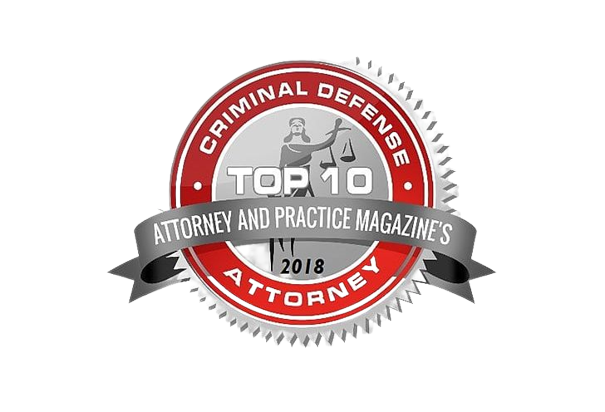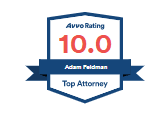Phoenix Internet Crimes Lawyer
A Former Prosecutor on Your Side
Home > Internet Crimes

2023 Super Lawyers

AV Preeminent Rated

Best Law Firm

A+ BBB Accredited
Internet Crimes Defense Attorney in Phoenix
Types of Internet Crimes
The scope of internet crimes goes beyond financial breaches and similar access to people’s personal information. Nationally, the top internet crimes are:
- Phishing scams. These schemes often use phony websites (that mimic actual sites) to try to get the user to enter personal information, such as bank account numbers and passwords, social security numbers, and similar information, which is then revealed to the person involved in the scam.
- Identity theft. Once your personal information is in the hands of other people, they can use it to make online purchases in your name, using your credit card or bank information. In some cases, loans may be taken out in the name of an unsuspecting person.
- Online harassment and stalking. With email and all the social networks available today – Facebook, Twitter, etc. – it is easy to contact people. Some people may see that contact as a threat or as harassment. Cyberstalking can also take other forms, including gaining access to and “infecting” a computer with malware that allows another person to monitor online activities and increase the possibility of harassment and stalking.
- Invasion of privacy. Once access to your computer is gained, it is easy for another person to invade your privacy by reading your emails and tracking your online activities.
While these are not the only internet crimes, they are some of the most common. And at least when it comes to hacking and similar activity, they are included under a broad computer tampering law in Arizona.
Request Your Free Consultation
Arizona Computer Tampering Law
Computer tampering in Arizona is covered generally in A.R.S. 13-2316. That law says the you commit the crime of computer tampering in any one of many different ways. This includes any of the following, when done without authorization:
- Accessing, damaging or changing any computer or computer network with the intent to defraud or to obtain property by false pretenses.
- Knowingly damaging or altering (including deleting or destroying) a computer program or data.
- Knowingly infecting a computer with a “contaminant” (virus, phishing program, etc.).
- Recklessly disrupting a computer system or causing the denial of computer services to an authorized user.
- Recklessly engaging in a course of conduct using a computer that is directed to another person, and that threatens or terrorizes that person
- Stopping a person from exiting a website, forcing continued communication with that site.
- Knowingly obtaining any information required under the law to be kept confidential (health records, for example), or obtaining records that are not public records, by accessing a government computer network.
- Knowingly accessing any computer, computer system, or computer data without authorization. This is simply another way of describing computer hacking.
All these offenses are classified as felonies in Arizona. The particular classifications run from class 2 felonies to class 6 felonies. And although this particular law covers a lot of ground, including hacking, numerous financial crimes, stalking and harassment, there are additional subjects covered by still other Arizona statutes.
Award Winning Criminal Defense








Cyber Crimes Against Children
Additional laws prohibit the use of computers to commit certain acts involving children. They include luring, sexual exploitation, child pornography and similar laws, all of which are intended to protect children, and all of which can be violated through the use of computers and the internet.
Defending an Internet Crime Charge
If you are facing a charge of committing an internet crime, you need a knowledgeable and experienced criminal defense attorney to guide you through the process. Your goal, of course, is to have the charge dismissed or reduced, or, if appropriate, to take the case to trial and obtain a not guilty verdict.
Many internet crime charges appear to be airtight because of the tracking, “time-stamping”, and records obtainable through computers. Fortunately, those same features may provide a defense against the charges against you, allowing us to demonstrate that it was not you who operated the computer during the relevant time period. Other possible defenses are that you were authorized to access the information or the computer system, or that you had no intention to commit a fraudulent act and were unaware that your actions could cause harm to another person.
At The Feldman Law Firm, we understand the pressure that a criminal charge can cause not only for you, but for your entire family. If you have been arrested for an internet crime, or if you believe you are under investigation, call us for a free consultation.
Criminal Law Firm Near You
Schedule a Consultation



